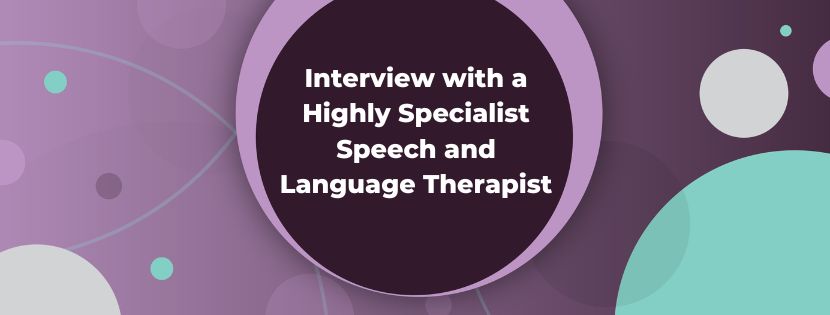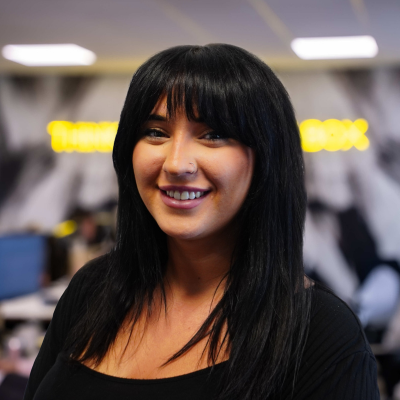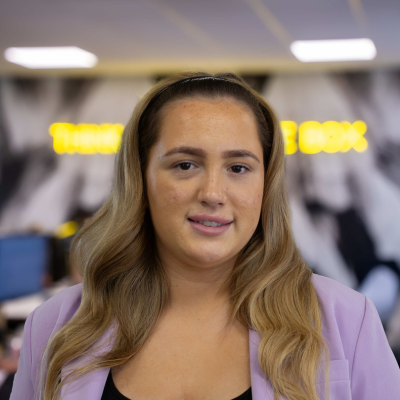Beyond Words: How Speech And Language Therapists Address Mental Health In Families
25 Sept, 20241-2 minutes
In this blog, you will learn:
- A typical day for a Highly Specialist Speech and Language Therapist.
- How to stay current with the latest developments in speech and language therapy.
- Essential skills and qualities for Speech and Language Therapists.
- Rewarding aspects of working in speech and language therapy.
- Where the latest Speech and Language Therapist jobs are and how to apply for them.
In this exclusive interview, we spoke to Eve, a Highly Specialist Speech and Language Therapist, who works within parent-infant mental health and early attachment.
Eve specialises in supporting relationships between babies and their parents from conception to two years and works with other professionals to create healthy early development. Through the incredible work Eve does, she aims to strengthen bonds between parents and their babies to help families overcome challenges such as early trauma and parental mental health issues.
Throughout the interview, Eve provides an inside look into her day to day responsibilities, the rewarding aspects of the job and the skills needed to succeed in speech and language therapy.
Can you describe your specific area of specialisation within speech and language therapy?
I work in parent infant mental health, in an early attachment service. I work in a team of Clinical Psychologists, Social Workers, Health Visitors, Psychotherapists and Psychiatrists.
Our service helps to understand and support the relationship between parents and babies from conception through to 2 years.
There is lots of evidence that a baby’s social and emotional development is affected by their attachment to their parents within this critical period. Sometimes, things can impact on this relationship, like parental mental health difficulties or parents’ own difficult experience of being parented.
What drew you to specialise in this particular area of speech and language therapy?
I previously worked in an adolescent mental health service and many of the young people I worked with had experience of early trauma and difficult relationships.
I felt drawn to support families at an early stage, to help prevent some of these longer-term difficulties.
What does a typical day look like for you as a Highly Specialist Speech and Language Therapist?
There really isn’t a typical day for me as a Highly Specialist Speech and Language Therapist as the role is so varied! I visit families at home as well as offering consultations and networking with other services.
I have supervision at least once a week; working with babies adds a level of intensity and vulnerability to the work and supervision is so important to contain this.
I also attend a weekly team meeting and regular training and deliver training to other professionals.
How do you stay current with the latest research and developments in your field?
I attend regular training, both face to face and online, relating to the field. I also do my own self directed learning.
In our weekly team meetings and quarterly ‘away days’ we discuss relevant research and developments in the field.
What is the most rewarding aspect of your job?
After working with a family for a long time, seeing a parent build their confidence and develop a positive relationship with their infant is so rewarding. Knowing I have played a part in this too makes the job so worthwhile.
What skills or qualities do you think are essential for someone in your specialisation?
Being able to work in a team is essential. Although we each carry our own caseload, most of the care planning about each family is made as a team or in supervision.
Being thoughtful and reflective are also key to holding the experience of both the parent and baby in mind. Observational skills are important, particularly in relation to picking up cues from the baby and reading what they might be communicating to us.
Be patient too. It’s easy to want to offer a ‘quick fix’ but that isn’t possible in parent infant mental health - it’s a slow service.
Are there any certifications or additional training you would recommend for someone entering your field?
There is no specific additional certification you need to enter the field, however useful training could include trauma and attachment, sensory processing and baby bonding.
How has technology impacted your role and the treatments you provide?
Working with vulnerable families it feels important to be very present and give our full attention, so we don’t bring laptops or devices on visits.
We do offer a therapy called Video Interaction Guidance (VIG), which involves video recording interactions between parents and infants. It’s a strengths-based approach, helping to promote attunement and mentalisation in relationships.
What motivates you to continue working in this field, especially when faced with difficult cases?
For me it’s connecting with the baby’s experience that keeps me in the field, as they are so vulnerable and it feels so important to give them a voice.
Although it can be challenging, I feel privileged to work in an incredibly skilled and supportive team.
Speech & Language Therapist jobs
If you’re searching for your next Speech & Language Therapist job, why not take a look at the latest vacancies, or simply upload your CV to be notified when a relevant position becomes available.
Recruit Speech & Language Therapists
As healthcare recruitment specialists, we support local authorities and private sector businesses nationwide with their temporary, interim and permanent recruitment needs.
If you’re struggling to fill a Speech & Language Therapist vacancy, why not get in touch with our healthcare specialist, Natalie Boaler on 01772 954200 to see how we can help?
Share your experience
Every individual brings a unique set of experiences, thoughts, and insights to the table. We believe in giving a voice to a community of professionals to inspire positive change and champion reform in the healthcare sector.
If you work in the healthcare sector and would like to share your own personal and professional experiences, we’d love to hear from you. Perhaps you have a different perspective, could offer a fresh angle, or want to challenge assumptions.
Simply reach out to our Head of Content, Nicole Sherwood, to discuss a collaboration which makes your voice count.
Who is Spencer Clarke Group?
Established in 2017, we’re a vibrant and progressive recruitment agency based in the heart of the North West.
We continually reimagine the recruitment process to challenge convention and defy expectations; from creating a better recruitment experience to remodelling employee engagement, we thrive off doing things differently and turning heads along the way.
We operate in two sectors:
In eleven specialisms:
Healthcare, Social Care & Nursing
Corporate Functions & Business Support





